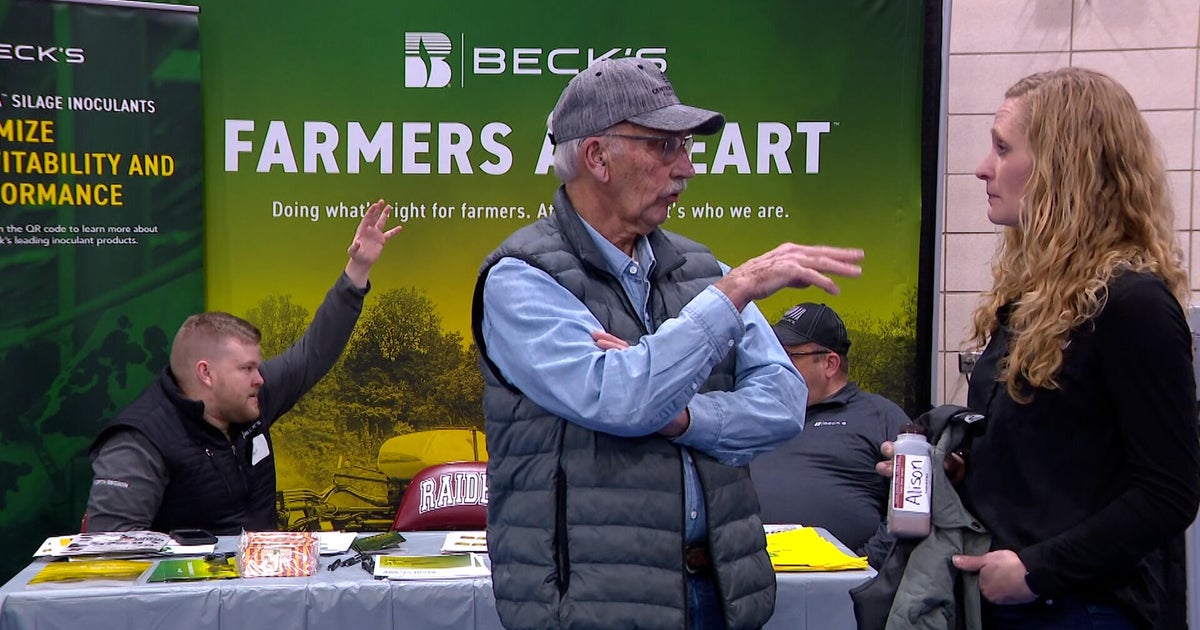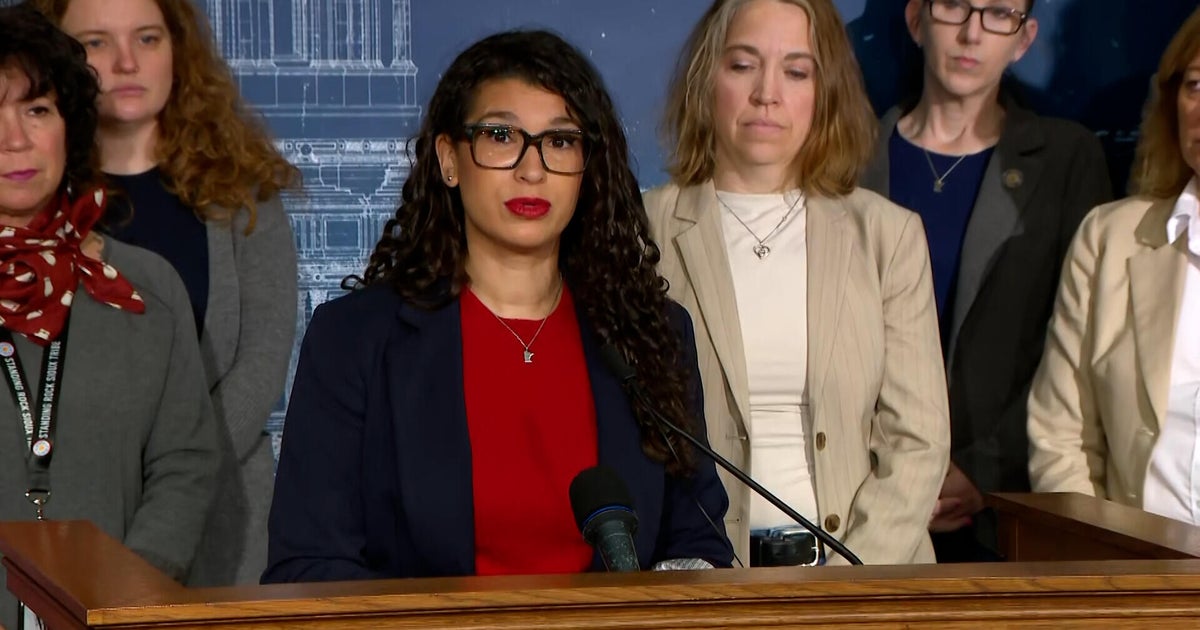Included in government food aid boxes: A letter from President Trump
The U.S. Department of Agriculture's "Farmers to Families Food box Program" was created to deliver fresh vegetables, fruit, milk and meat to food-insecure families during the pandemic. But the boxes now have another ingredient: A letter on White House letterhead signed by President Donald Trump.
The anti-hunger nonprofit Feeding America said that some of its food banks have reported getting the letter in food boxes, which has prompted concerns from its members given that nonprofits aren't permitted to make political endorsements. Democratic lawmakers are taking issue with the letter, which they claim is "self-promoting" and "inappropriate" given the timing before the November 3 presidential election, according to an August 14 letter to the USDA.
The lawmakers also said Mr. Trump's letter appears to violate the Hatch Act, which prohibits government officials from using their official authority to affect the result of an election.
Feeding America said it believes it's permissible for food banks to distribute boxes that include the letter because it focuses on the aid program and repeats safety advice about washing hands and practicing social distancing. While Mr. Trump's letter doesn't mention the election and doesn't directly plug for his re-election, it praises his own efforts to provide food aid to stricken families, stating that "safeguarding the health and well-being of our citizens is one of my highest priorities," according to a copy of the letter seen by CBS MoneyWatch.
The USDA didn't return a request for comment about the inclusion of the letter in the food boxes.
"We've heard from several of our food banks about the letters," said Carrie Calvert, managing director of government relations at Feeding America. "Their first question was, 'Is this allowed, as an organization, to distribute the letter?'"
She added, "Since it provides information about the program and is related to the program's purpose, it is permissible and allowed for our food banks to distribute it."
The USDA has distributed almost 80 million boxes between May 15 through August 31, according to the agency. It's unclear how many boxes have included the letter from Mr. Trump, which was earlier reported by ProPublica.
Trump's stimulus check letter
The effort is reminiscent of Mr. Trump's letter that was mailed to about 160 million taxpayers who received stimulus checks. Those letters were intended as notices to inform people about the one-time payments, but also included effusive praise for the U.S. government's efforts to help struggling Americans.
In both the food box program and the stimulus check letters, Mr. Trump's distinctive signature appears at the bottom of the page. Both letters include English on one side and Spanish on the other.
With the stimulus checks, Mr. Trump's name appeared in the memo line on the left side of printed checks, although far more taxpayers received direct deposits into their bank accounts rather than printed checks. Despite similar stimulus payments made under George W. Bush and Barack Obama, those checks didn't bear the name of the president at the time.
As with the stimulus check letter, the food box missive from Mr. Trump is raising concerns about the use of taxpayer money on the effort.
"A federal food assistance program should not be used as a tool for the President to exploit taxpayer dollars for his re-election campaign," Representative Marcia Fudge and more than 40 other House Democrats wrote in the August 14 letter to the USDA.
Food box program
The Farmers to Families Food Box Program was designed by the USDA earlier this year after the pandemic heightened food insecurity among U.S. households and also hurt farmers. With restaurants and schools shuttered due to shutdowns, farmers lost major clients overnight, causing some dairy farmers to dump milk and farmers to plow fields.
The USDA's box program was created to help both farmers and families in need. The agency hired distributors to package food from farmers, and then deliver the boxes to food banks and other nonprofits, who then distribute the boxes to families.
While the Trump administration has hailed the program, others haven't been as sanguine. The conservative-leaning American Enterprise Institute on Tuesday called the food boxes "unnecessarily wasteful" and suggested its $3 billion budget would have been better spent directly supporting nonprofit food banks.
The program has "created an entirely new and unnecessary layer of private-sector 'distributors' that are increasing the costs of delivering food to families in need," AEI visiting scholar Vincent Smith wrote. "Allow the food banks to use the monies in ways that work best for the families they serve, buying from the cheapest and best sources available, and allowing efficient markets to do their job."
The food boxes are helping alleviate some need, said Feeding America's Calvert. But food banks have seen a spike in demand that hasn't let up since the pandemic began earlier this year. Her group estimates there are now 54 million food-insecure adults and children in the U.S., compared with 37 million people before the pandemic.
"For the communities of food banks who have been able to receive the food boxes, it is helpful," she said. "But it's not meeting all the additional needs that the COVID pandemic has created."



